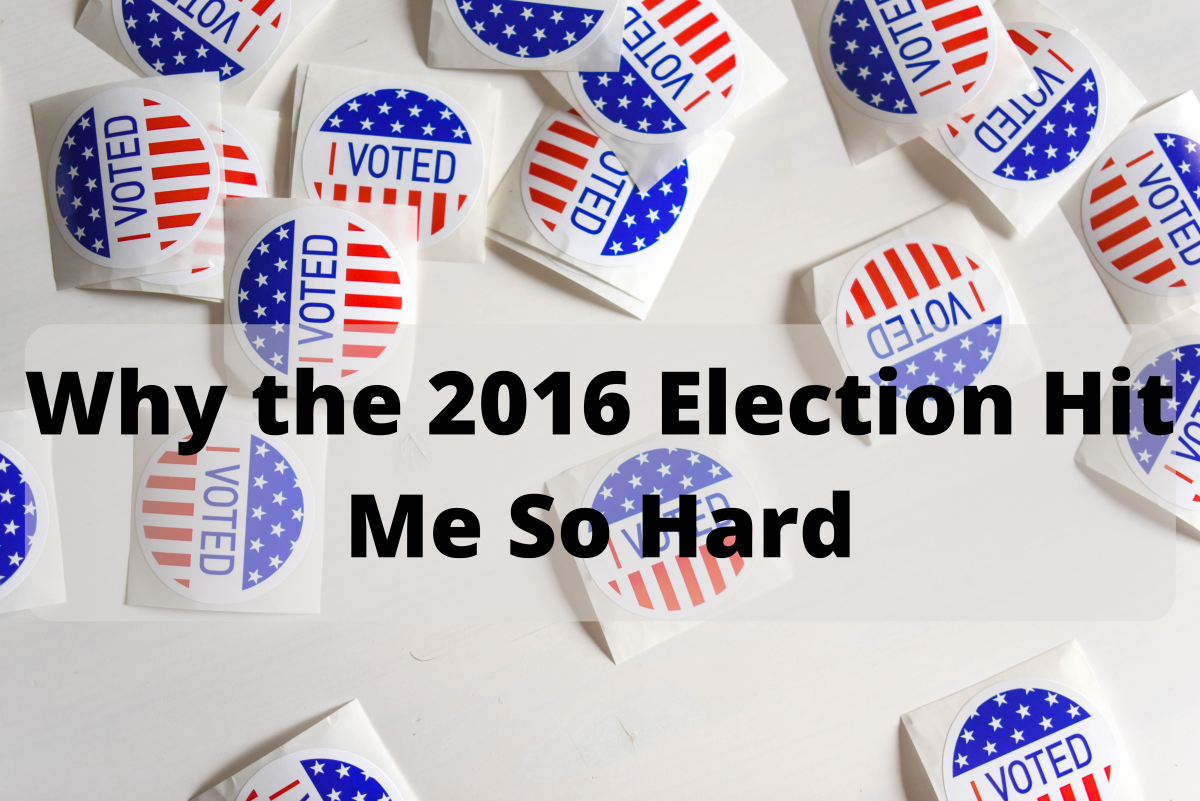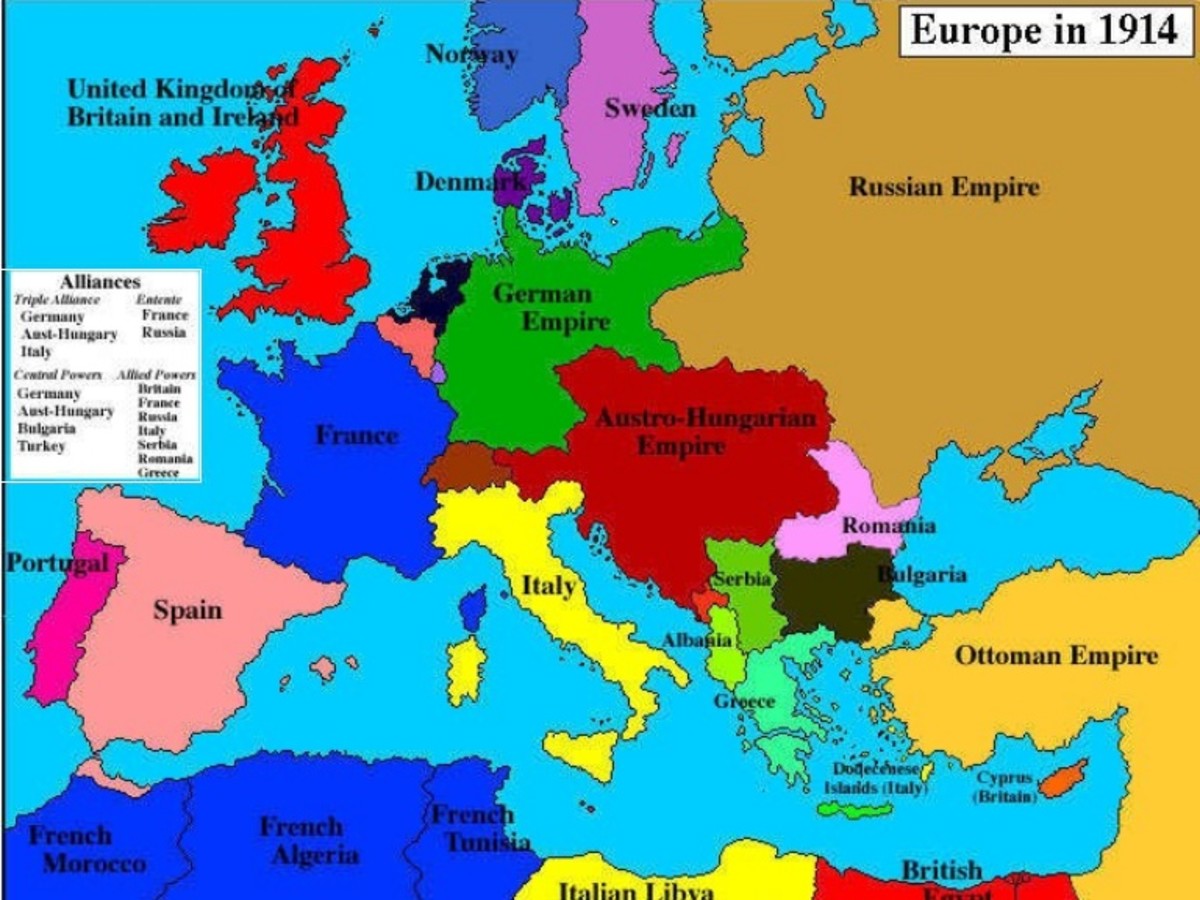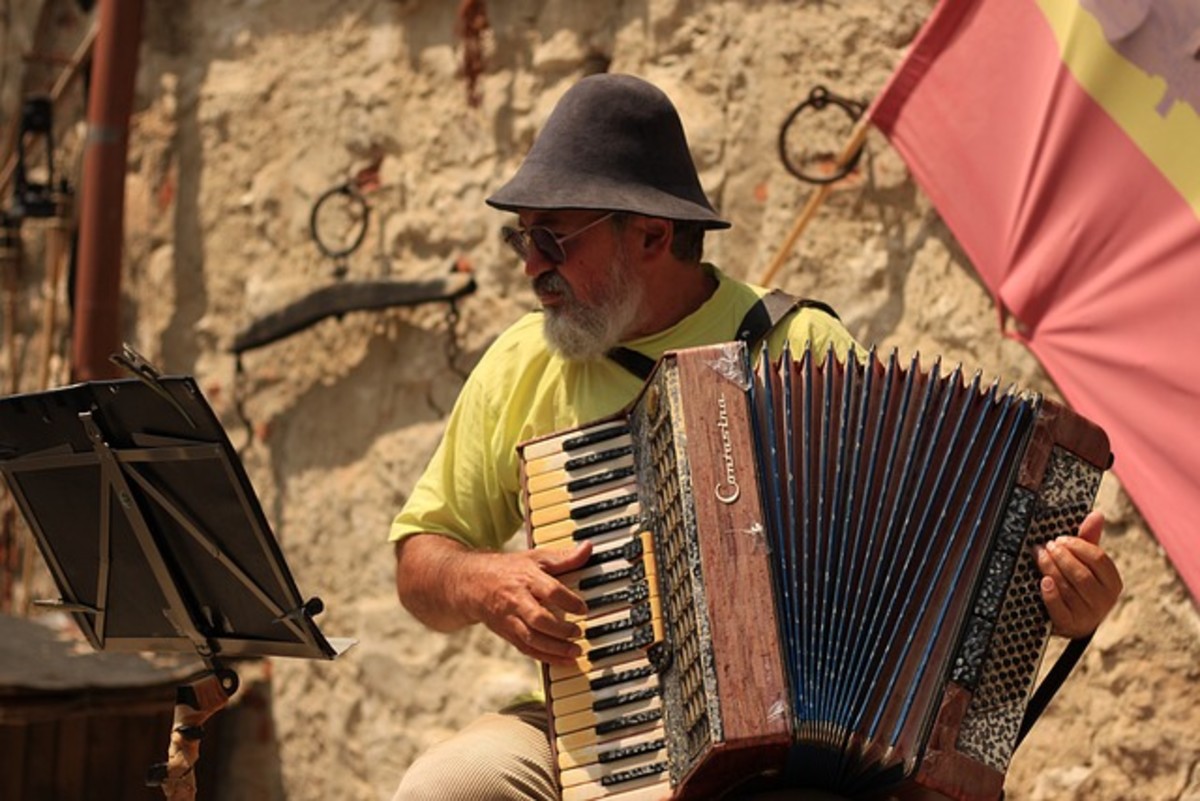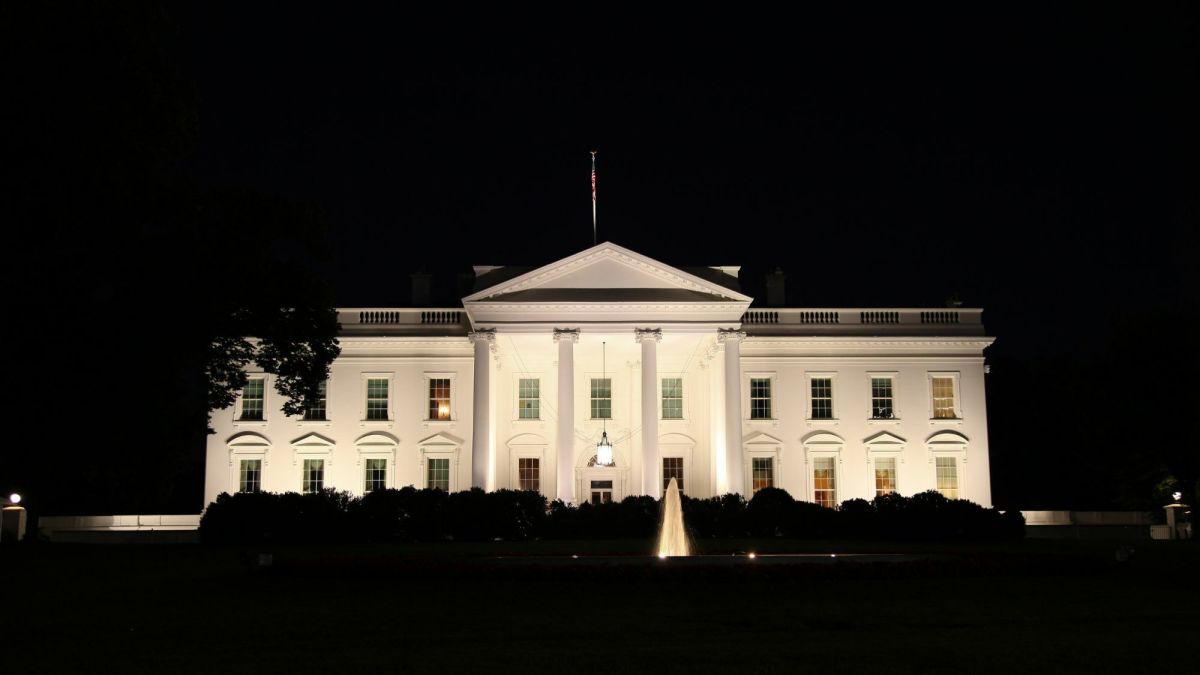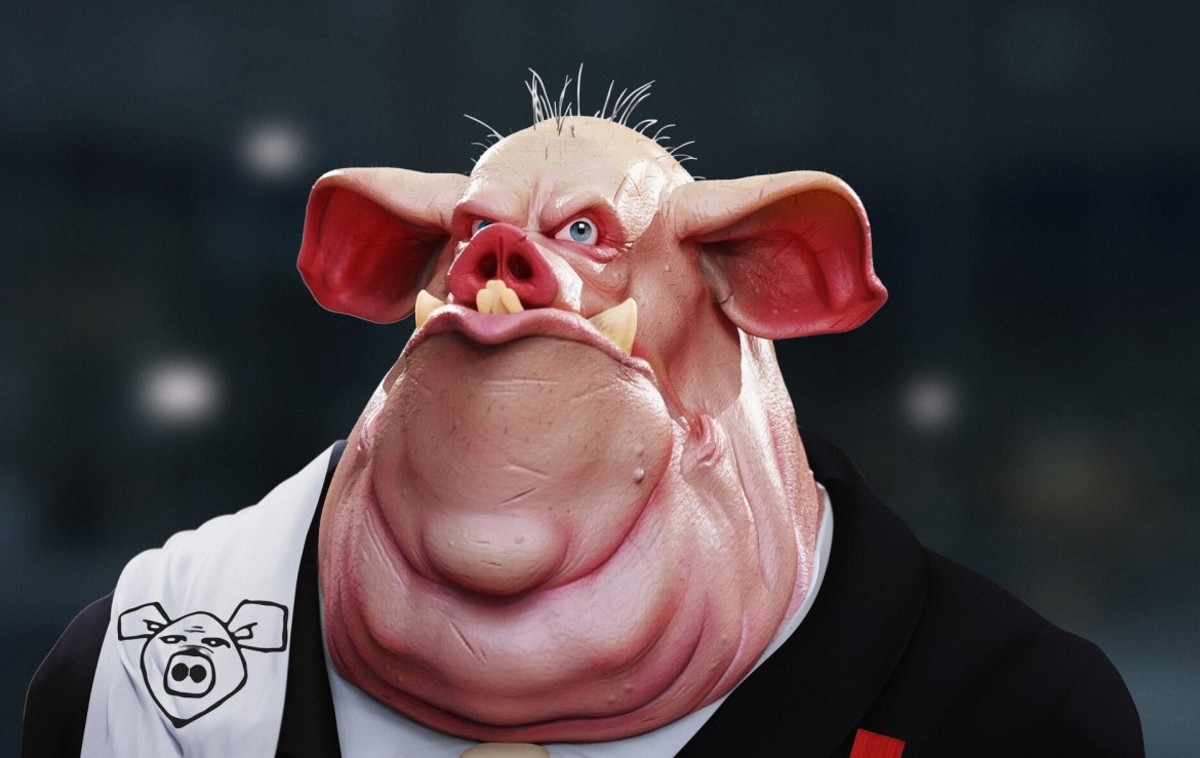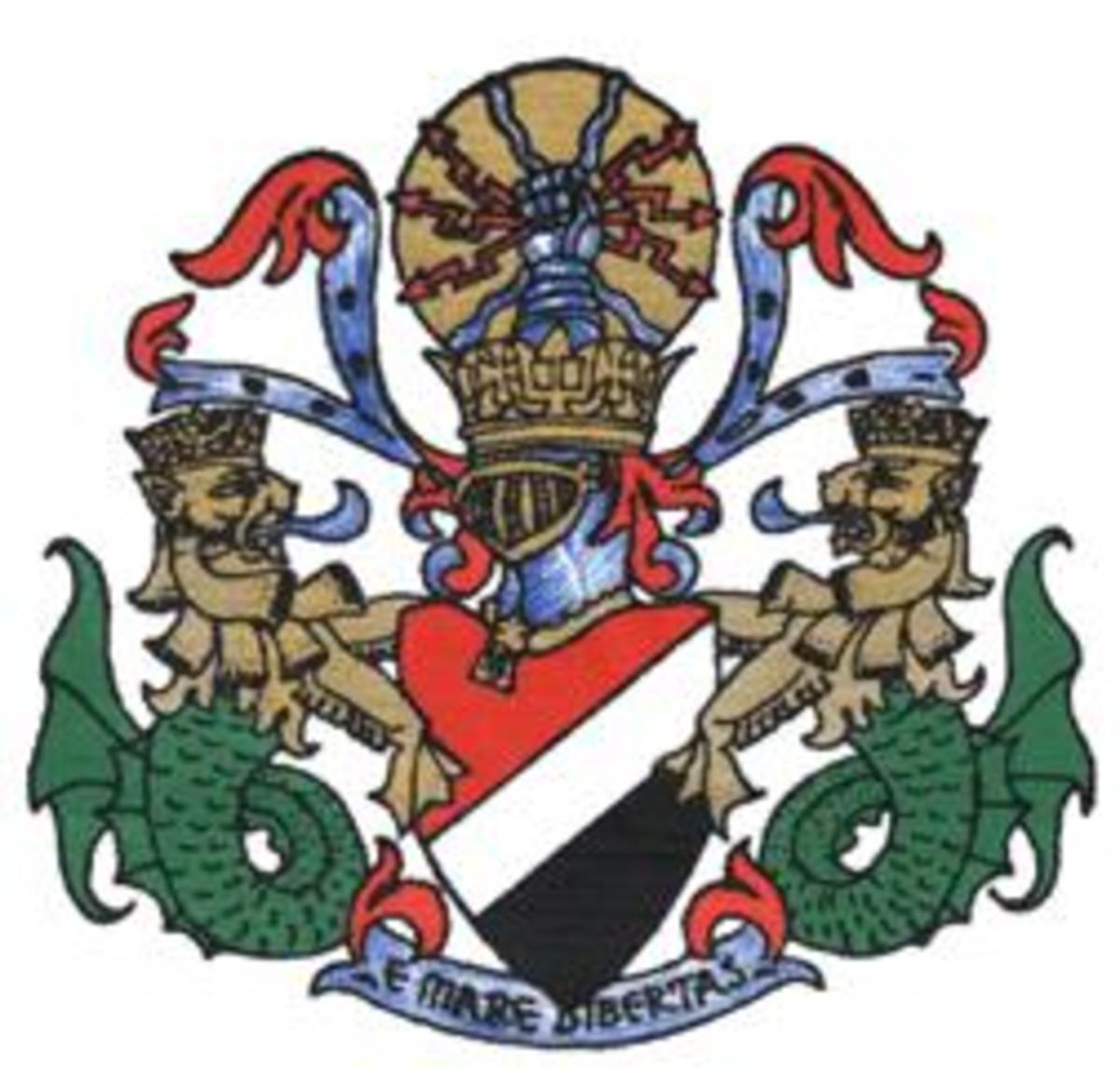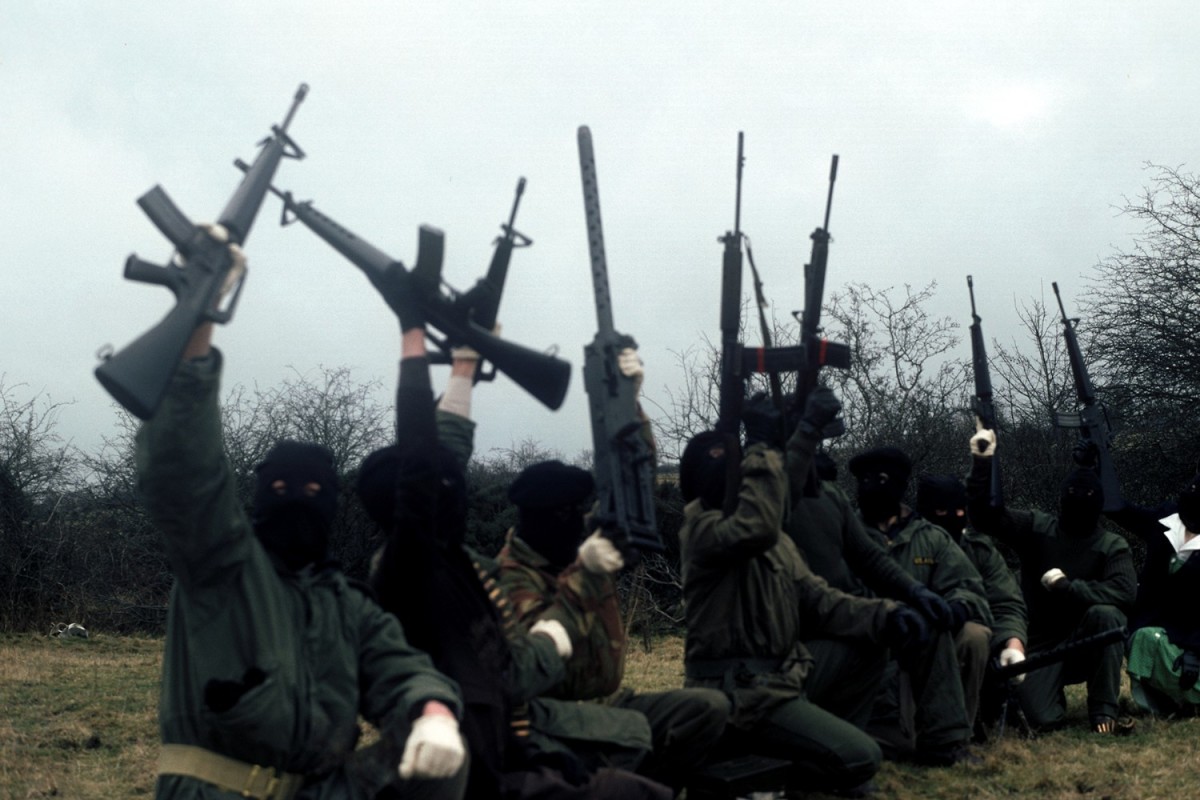The State of Romanian Politics. For How Long Can We Defend the European Democracy?
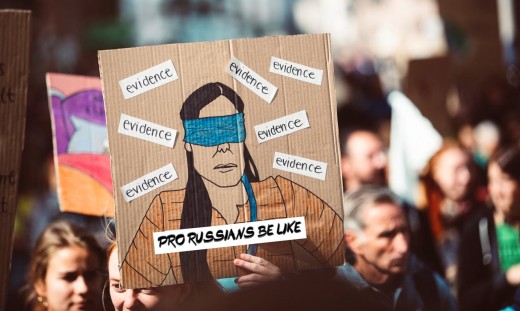
Political Burnout
I’m tired… I never thought I’d experience political burnout, but here we are. I’m too young for this stuff. Not young-young, but still young; old enough to see past the platitudes, though. And that’s what makes it harder on the heart.
I, too, was once a politically naive young man with hopes for the future. I thought my vote could make a difference and would change the destiny of our country. I thought the quiet guy was better than the idiot with a loud mouth. I thought that a German ethnic would be a far better president than a Romanian of my own. (We all know the quality, precision, and work ethic Germans are known for. What are we Romanians ever known for? Nothing good, mostly. Everyone is polite when they talk about us. And politically correct, of course). But there’s only so much one person and one single vote can change.
Looking back on all the wishful things I believed to be true and the current situation, you could say we were naive. But things are not that bad to justify the spike in ultranationalism and Euroscepticism!
What happened to our beautiful country?
If you stare too much into the abyss, the abyss will gaze back at you… I’m starting to entertain the thought that some folks shouldn’t be allowed to vote, and that’s… undemocratic.
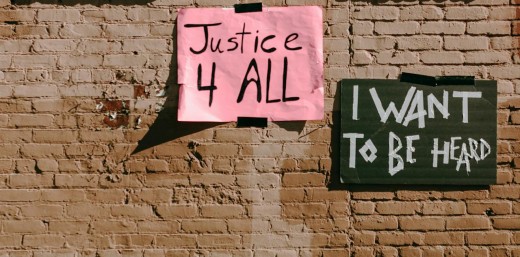
Ten Year Ago Romania Sown Hope
Back in 2014, Romania looked forward and saw a glimmer of hope in the persona of our would-be president, Klaus Iohannis. (What a funny thing that is, betting all your hopes and dreams on a politician!)
Mr. Iohannis was an academic, a former mayor from a posh area of our country, who showed up with good credentials. Despite not being a man of many words (very unusual in politics, where everyone expects a cocky comeback), he only promised justice reforms and rode the coattails of his German background with a simple slogan, “Romania, where things will be done properly,” i.e., the German way. (Basically, a civilized, more neutral version of Trump’s MAGA, coming from someone who belonged to a respected ethnic minority.)
“He’s not ethnically Romanian,” they said. “And how exactly is that a bad thing?” many of us thought. “He’s Catholic,” they added. “Catholic or Orthodox, we’re all Christians” was a mental counterargument most people could get behind. And so on.
Iohannis didn’t have a sharp comeback, so he stayed quiet. But for every stupid argument the opposition came up with, the more likable Mr. Iohannis seemed.
“He doesn’t have kids” was the ultimate argument. In a traditional, family-centric society like ours, that’s a big concern. Especially since “he sold kids.” (Brainrot allusion to Mr. Iohannis facilitating a few international adoptions).
I could never forget that scene aired live on national TV when President Iohannis said, “It’s not that I do not want children; I can’t have children. I’m infertile.” Nobody knew. That was sensible and private information, but after enduring months of personal attacks on this subject, Iohannis let the cat out of the bag.
You could literally see the face of his political opponent at that time, Victor Ponta, drop as soon as those words were spoken. Even an unscrupulous politician like him realized that this could cost him the election.
And it did. So many things piled up, but if you ask me, this was the straw that broke the camel’s back and united every generation.
Romanians had had enough of Victor Ponta, the political party he belonged to (the Social Democrats), which was perceived as the root of all national corruption and nepotism, and the ‘old guard’ of politicians that Mr. Ponta represented. (More about this later, as the guy just made a strong comeback during this year’s re-elections.)
A huge mobilization sparked out in the diaspora (89.73% pro-Iohannis in the final round of the 2014 elections). Many youngsters who worked or lived abroad called back home and told their conservative, old parents they’ll never return to Romania and see their parents ever again if they vote for Victor Ponta and his Social Democrat Party. (Most of the old folks vote for the Social Democrats, who are the former communists rewrapped into a modern form. They’re more adept at using ideological persuasion and social benefits to lure our elders into voting for them.)
Since back then, no candidate could be accused of being against the church or embracing LGBTQ, like in the 2024–2025 elections, many of the older generations gave in to their children’s pleas to vote for Iohannis.
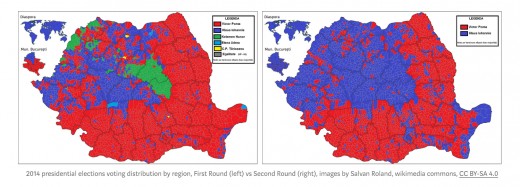
An Unexpected Turn
In the second round, the capital city, with its 6 districts (Mun. Bucuresti on the above map), a good chunk of the southeast side (the tail of the fish shape, as we call it), and the central northwest part, turned from red to blue. Furthermore, there are blue patches all over in places where they weren’t before. Despite Victor Ponta amassing 40% of the total votes in the first round of the elections, Klaus Iohannis won the second round with 54% of the votes!
In 2014, people banded together to stop “the red plague” from destroying our country. It was one of those rare moments when ethnicity and religion no longer mattered. I used to tell myself at that time that our country had made incredible progress by overcoming that redundant “look, this guy is not like us” backwater mentality. I was so proud of my people.
Who knew that a few years later, even Diaspora, who used to be the voice of reason, would switch sides on us and push our country into the hands of the far-right wolves in the 2024 canceled elections and once again in the first round of the 2025 re-elections?
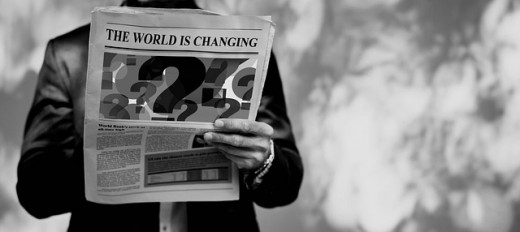
Cause and Effect
Slightly before the 2024 presidential elections, the same old actors took the spotlight, with a few smaller ones lying in the shadows, ready to speculate on the emergent anti-mainstream sentiments, but as you probably know, the unexpected outcome sent a massive shock throughout our country, Europe, and even the whole world.
The reasons are quite mixed, and they go way back.
After Klaus Iohannis was elected as the president of Romania over a decade ago, there was an institutional attempt to fight against corruption at the highest levels. The honest people working in law institutions cracked down on shady businessmen and corrupt politicians like never before. Several influential people were facing trials and sentences all of a sudden.
Unfortunately, the attempt of President Iohannis to form his own technocratic government centered around his former party, PNL (National Liberal Party), was a huge flop, and it still ended in a coalition government. More active abroad than in his own country, the opposition would soon find fault with whatever he did, calling him an absent president when he focused more on external issues and blaming him for overstepping his role when he concerned himself with national issues.
Obstructed by a few betrayals inside the National Liberal Party and the eternally sinister politicians of the Social Democratic Party, the fight against corruption didn’t last long either, or it didn’t cut as deep as it should have. The cleanup was massive, important progress was made, but a lot of dirt was unearthed, and many slippery folks slipped through the net.
The corrupt politicians, fearing that they would face jail, tempered themselves a little bit and quickly found ways to pass laws and regulations that would limit their legal responsibilities. Things like abusive conduct, abuse of office, and breach of duty were removed from the list of crimes that could lead to a served sentence. To make bribing less tempting, the politicians even increased their own salaries and added lots of other free benefits for themselves. To make sure that even if they got caught, they would serve as little time as possible, prisoners could be released more easily on parole. And so on.
Midway through Iohannis’s second term as president, or even much earlier, people’s enthusiasm for a big reform has been severely curbed. To many, Iohannis was half a failure, even though we have made considerable progress during his office. However, the hegemonic parties like PSD, PNL, and UDMR became the public enemies more than President Iohannis. Those folks have been, in one form or another, ruling our country for the last 30 years. Therefore, if anyone was guilty of something, it should be them.
In 2020, Brexit took place, which sent massive shocks all over Europe and threatened the stability of the European Union. Anti-EU sentiments were on the rise and more credible than ever. The effect of Brexit was felt in Romania too, giving our Eurosceptics the courage to become even more vocal.
Then, Russia invaded Ukraine in 2022 following the annexation of the Crimean Peninsula. In the beginning, the Romanians were very sympathetic to the Ukrainians, but the never-ending war, the poor management of the war on the diplomatic side, the many resources we poured into it at our expense, and even the feeling that the war itself could have been prevented made the Romanian people lose trust in the EU and NATO.
These events have a huge contribution to the outcome of the canceled Romanian presidential elections of 2024, splitting a good chunk of the neutral electorate between the newer political parties and the independent candidates and fueling the ultra-nationalist angle.
That being said, let’s briefly go through the most notable groups and candidates of the 2024 elections, since most of them will be relevant in the 2025 re-elections too, and the context will paint a clear and complex picture of Romanian politics.
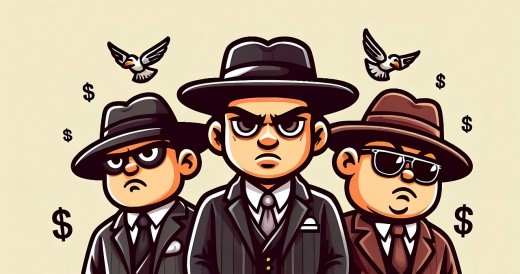
Political Hegemony
First, we had the decadent, hegemonic parties: UDMR, PNL, and PSD.
From the Democratic Union of Hungarians in Romania (UDMR), Kelemen Hunor was once again participating in the presidential elections just for show. The Hungarian politicians never aimed for anything more than being an enclave inside our state, being more concerned with ethnic politics and maintaining their local influence over the territories where they constitute an ethnic majority.
Mr. Hunor’s sole purpose during every election is to flaunt his steady 5 or 6% of the total votes, which allows the Hungarians to negotiate their seat at the big table. This is how they’ve been included in every governmental coalition our country has had in the last 30 years or so.
In Romania, the ethnic Hungarian party has the status of a feudal lord. Since they have a few hundred thousand ethnic votes in their pockets, it’s much easier for us to allow them a lot of local freedom in exchange for their beehive support against the far-right extremists.
From the National Liberal Party (PNL), we had Nicole Ciuca, a general in the reserves and former prime minister. Ciuca, who many have speculated was named Prime Minister mostly for his military background in the context of the Russo-Ukrainian war taking place right next to our borders, was not much of a politician, but he had the second biggest political party behind him.
The Liberals also have a history of attracting most of the neutral, non-party-loyal voters, but unfortunately for Mr. Ciuca, the neutral vote was more chaotic than ever in 2024. His performance in the presidential elections was subpar, and he quickly faded into obscurity after the first round was canceled and rescheduled.
The usual suspects and regular puppet masters, the Social Democrat Party (PSD), showed up more presentable than ever. With half a whitewashed reputation following a few attempts at an internal clean-up in which they relegated or removed a good chunk of their most openly corrupt and shady members, they pushed forward their candidate, Marcel Ciolacu, at that time the acting prime minister.
Ciolacu was a far cry from a decent option, suspected of buying/forging his own high school diploma and possessing the same cocky, slimy attitude you’d expect from the Social Democrats, but he was still the best the ‘red plague’ has produced in a long time.

The New Blood
Two relatively new political parties, USR and AUR, with strikingly opposing political views, were set to make some waves in the 2024 elections.
From the Save Romania Union (USR), we had Elena Lasconi, a former journalist and mayor of Muscel.
USR is a progressive-reformist party founded in 2016 by the current mayor of Bucharest, Nicusor Dan. Very popular among the young voters, for obvious reasons, the party is also notorious for being a gathering place for “the children of the secret service,” dipping into generational wealth and influence.
Nonetheless, the Save Romania Union is the only political entity from Romania to express vocal, open support for the LGBTQ community through some of its members. Elena Lasconi herself is known for having a bisexual daughter with whom she had a falling out in 2023, after the girl found out her mother voted for “the traditional family” during the 2018 failed referendum that aimed to define a family as solely “the union between a man and a woman.” Although the two mended fences during the 2024 political campaign.
Lasconi insisted that she makes a clear distinction between a religious union sanctioned by the church (which can only be between a man and a woman) and a legal union officiated by the city hall. She chose to adopt a half-in, half-out position on the issue, advocating for acceptance without renouncing her traditional and religious values, which was still more pro-LGBTQ than any other important candidate, considering she also didn’t cut ties with or disown her daughter over her sexuality.
Because of these reasons, the phrase “voting for Lasconi” became a euphemism for “being gay” among the conservatives and anti-LGBTQ folks during and after the 2024 elections.
Another emerging force is the Alliance for the Union of Romanians Party (AUR), a populist, ultra-nationalist political entity founded in 2019. AUR (which means “gold” in Romanian) is a gathering of radical intellectuals, religious fanatics, esoteric misfits, and weirdoes who nobody took seriously at first but have surprised everyone with the growing number of supporters they have received with every election that followed.
Through its charismatic leader and former social activist, George Simion, who also participated in the 2024 presidential elections, they were perceived as the ultranationalist flagbearers and the main threat to democracy before Georgescu’s unexpected rise to fame.
According to Diana Sosoaca (a controversial, former AUR politician, antisemite, pro-Russian, and antivaxer banned from participating in the 2024 election), she caught George Simion in bed with his driver. Simion, who is currently a family man with a wife and kid, is actually gay and living a secret romance with his driver. Or so she says.
Up to this day, the supposed far-right politician has not commented much on the accusation, other than stating that “private life should be kept separate from public life,” and people have the right to do whatever they want in the confines of their privacy. Surprisingly, most of the anti-LGBTQ electors have chosen to ignore the rumors and Simion’s mellow stance over the issue while dumping the ‘LGBTQ halo’ on the USR candidate, Elena Lasconi (and on Nicusor Dan much later).

The Independent Candidates
Perhaps the biggest shift taking place in Romania was that, for the first time, a few independent candidates had an important sway over the electorate. One that threatened the hegemony and made light of the endorsement of the main political parties.
Among the few independent candidates that participated in the 2024 elections, three stood out from the rest.
First, there was my favorite, Cristian Diaconescu, a soft-spoken, pro-EU and NATO intellectual and academic. Many of us saw voting for a decent independent candidate with small chances of winning as some form of protest against the same old political parties we came to hate. It was much better than not voting at all or voting for an extremist.
Then, there was Mircea Geoana, a former Social Democrat, Romanian ambassador in America, and NATO secretary general.
Geona is notorious for his cringeworthy moment during the final round of the 2009 presidential elections, when he crowned himself the winner slightly before the final count was delivered and his opponent, President Basescu, made a sudden comeback and won the election.
Live on TV, Mr. Geoana turned to his wife and said, “Michele, my love, we won,” before kissing her, throwing victory signs in the air with both hands, and celebrating with his campaign staff. Shortly after, Basescu won the elections and laughed in his face, calling him “Dumb and Dumber,” a nickname that sundered Geoana’s national political career for decades to come.
Presenting himself as a changed man and a more mature politician who learned from his mistakes, Mircea Geoana sought to jumpstart his national political career in 2024, making use of the political ties and reputation he earned as an ambassador in the U.S.A. and NATO chief. Many people thought he had an actual chance of going into the second round.
Last but not least, there is the dark horse of the 2024 presidential elections, Calin Georgescu.
As a sustainability and pedology expert, Georgescu worked in the Ministry of External Affairs and the Ministry of Environment, Water, and Forests in the post-communist era of Romania (1990–2000), and at one time, he was seen as the perfect candidate for the Prime Minister’s office by various groups, including George Simion and his political party, AUR, which Georgescu has also been in cahoots with. He was by far a new face in Romanian politics, but because he wasn’t exactly ‘pushed to the front row,’ he went completely unnoticed by the other politicians.
Calin Georgescu was absent from every political debate that took place that year and had no political campaign whatsoever, but as soon as the elections came around, the internet was full of propagandistic materials with him (short clips from TV shows he was a guest on over the years) and various esoteric, conspirational nonsense. He presented himself as a specialist in his field (working for the UN, no less), an intellectual, and a revolutionary, yet he could barely say anything without parroting old speeches of several controversial Romanian historical figures, word by word.
Furthermore, his solutions were not only controversial and nonsensical but also not functional in a modern, capitalistic economy. Like nationalizing every business (basically going back to communism) or building a horse-driven economy. (“Every minute, out there in the world, there’s a horse race happening,” Georgescu said while promoting the development of a “horse industry” that could jump-start the national economy.)
All he did was take advantage of the naivety and vulnerability of the Romanian electors, telling them more of what they wanted to hear and less about how he would accomplish everything. With a mysterious air and full of confidence, he acted as if he were too smart to even explain all the illustrious ideas he had in mind.
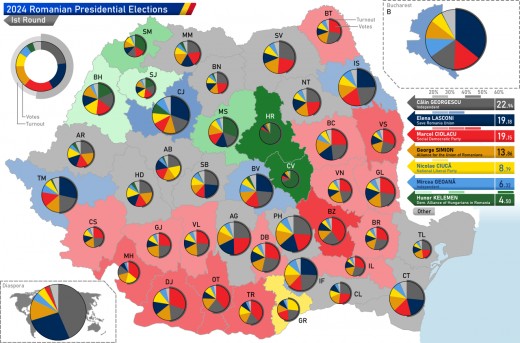
The Aftermath and the Canceled Elections
24 November, 2024. Every Romanian was glued to the TV until late at night, following the latest exit poll and waiting for the partial count.
Calin Georgescu and his supporters have said for quite a while now on social media that they have no doubt he will be the future president. Some of us have laughed. Myself included. Unbeknownst to us, plenty of others have treated his claim seriously and even contributed to the outcome.
Later that night, when the partial counts revealed an overwhelming growing number of votes for Mr. Georgescu, many of us started to ask ourselves, “Who is Calin Georgescu?”
The outcome came as a shock, but confusion reigned supreme. We were yet to discover who we were dealing with. Georgescu’s antisemitic, anti-NATO, anti-EU, and pro-Russian stances paled in comparison to his shady connections to multiple paramilitary and right-wing extremist groups.
Perhaps the most notable one was Horatiu Potra and his mercenary squad. Potra, who was like a Romanian Prigozhin, rallied behind Georgescu after a few failed attempts at a local political office and tried to participate in a 2024 coup.
Once President Iohannis alerted the Supreme Court about the suspicious activities fueling Georgescu’s campaign (undeclared sponsorship, a possible Russian intervention, the use of bots for social media promotion, etc.), and the elections were canceled and postponed for the next year, Georgescu advised his supporters not to believe this information and show up in front of the polling stations on December 8, when the second round should have taken place. There are strong indications that Calin Georgescu wished to stimulate a massive, violent street protest.
The Romanian police forces detained several suspicious men in black SUVs before they managed to enter Bucharest. These men were found in possession of a veritable weapons arsenal (guns, bats, knives, axes, etc.), drugs, and considerable sums of cash in various international currencies. They were Horatiu Potra and his mercenaries, allegedly on their way to infiltrate Georgescu’s supporters in the streets and act like agitators for the street violence needed for the coup.
Unfortunately for Calin Georgescu, the national security agencies did their job and got to Potra before it was too late, and most of Georgescu’s supporters were more gullible than violent. Without provocation, nothing major happened other than many people taking the annulment of the 2024 election as something personal. They swore to pay back this grievance democratically during the re-election.
It seems that nothing concrete was discovered to tie Mr. Georgescu to Russia or to tie him to the supposed coup. But at this point, no efforts were made to reinstate the elections or facilitate any type of smooth sailing for Georgescu’s future candidacy. Truth be told, it does seem like the Romanian authorities did hang onto anything they could to ensure that a guy who would threaten the national security and economic stability of our country would not become president.
The 2024 elections would most likely not have been annulled and postponed for the next year if Elena Lasconi, the other candidate who qualified in the final round with Georgescu, had more chances to win the elections. Unfortunately, since the public associated her with the LGBTQ movement, there were strong indications that most neutral voters would either abstain or vote for Georgescu.
Nobody wished for the situation to be this messy, but there was literally no other solution other than cancelling the elections. And President Iohannis and the Supreme Court had to take the fall for it.

The Re-elections
What did the Romanian politicians learn from the failed 2024 elections? Not to make amends and appease the people, of course. Their main concern was to increase their presence on social media. That’s how Georgescu became popular after all, and they did not want to miss out on the race.
Perfectly valid statements aside, some massive changes took place in preparation for the 2025 re-elections.
First, the three hegemonic parties (the Liberals, Social Democrats, and the Hungarians) banded together under a “pro-EU and NATO banner,” choosing and endorsing a single “independent” candidate in the person of Crin Antonescu. Antonescu is a historian, a former Liberal leader, and interim president of Romania who faded out of national politics in the last ten years or so.
I remember him to be a presentable person and an astute politician over ten years ago, but during the few live political debates that took place this year, it was clear the man has become outdated and cringe. Only a mere shell was left of his former political clout.
(On that note, the most memorable thing during this year’s pre-re-election political debates was the tragicomic statements “I want to address a question to myself. Why am I here?” and “We don’t need a modern army. If every Romanian had three gats (guns), the Russians would think thrice before invading us” belonging to the Romanian-American, pro-Trump, independent candidate, John Ion Banu Muscel.)
Then, the extremists banded together, expecting Georgescu to be banned shortly after he announced his candidacy. Which is exactly what happened. Many believe that George Simion, who continues to present himself as a stand-in for the “elected President, Georgescu,” has double-crossed Georgescu and used him as a mascot to gain the support of Mr. Georgescu’s electorate during the re-elections. The two politicians went together to vote at the same polling station on election day, and the AUR leader has stated numerous times he would name George Simion as prime minister if he wins the elections.
Last but not least, two more independent candidates joined the fray, further splitting the neutral vote.
The acting mayor of Bucharest and Save Romania Union (USR) founder, Nicusor Dan, announced his independent candidacy, robbing Elena Lasconi (USR) of not only her electorate but also her political backing. USR switched sides, endorsing Dan midway during the election period, despite Lasconi being their lawful candidate on the ballots and losing the appeal they issued for diverting the funds from Lasconi’s political campaign to Mr. Dan’s.
Nicusor Dan is a pro-NATO and EU intellectual and academic, a two-time gold medalist at the International Mathematical Olympiad (IMO) in 1987 and 1988, with a PhD in Paris. He has the reputation of an honest man who lives a modest life, but because he comes off a bit weird and socially awkward, many think he’s not presentable enough to be taken seriously in an international context. His fashion sense doesn’t do him much justice either.
Working for the town hall, my father has personally met him several times on the municipal construction sites. He loves to tell stories about how he personally lent Nicusor Dan his own protection gear during inspections and how he almost kicked him out once by mistake:
“What’s with that weirdo lurking around the gate? Kick him out!”
“Boss, that’s the new mayor…”
Despite that, my folks and I are massive Nicusor Dan supporters.
On the opposite side of politics, Victor Ponta announced his independent candidacy for 2025, splitting the Social Democrat (PSD) electorate (now rallied around Crin Antonescu in the three hegemonic parties coalition) while also presenting himself as a conservative ultranationalist in the attempt to also divert some votes from George Simion and Calin Georgescu’s electors.
Ponta, who (if you remember) lost to Klaus Iohannis in the final round of the 2014 presidential election, is believed to be secretly endorsed by the most corrupt and sleaziest wing of the Social Democrat party — mass media moguls, former leaders and people who have either been removed or fallen out of grace with the main party for their legal problems or foul reputation.
Very recently, Victor Ponta has admitted that back when he was prime minister, he deliberately opened the Iron Gates of the Danube and flooded a part of the Romanian countryside (which led to the loss of human lives) to save the Serbian capital, Belgrade, from suffering the same fate and earn favors with our Serbian neighbors. Despite his controversial confession, he still managed to obtain over 1.2 million votes (13%).
One notable fraud incident during the 2025 re-election happened in a county controlled by the Social Democrats, where a deputy mayor was filmed entering the voting booth during the voting process.
Some people believe the guy was pulling the strings to influence the people to vote not for Crin Antonescu, who was the candidate publicly endorsed by the Social Democrats and the hegemonic coalition, but for Victor Ponta. And considering who stands behind Ponta, that might not be such a far-fetched possibility.
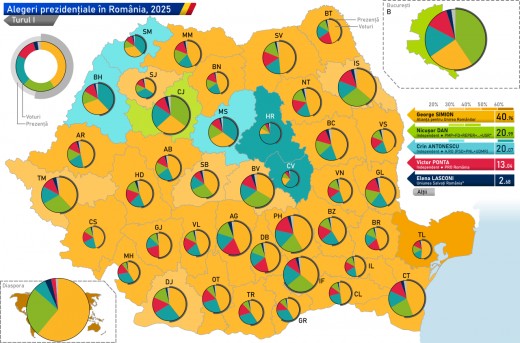
Two Former Social Activists Fighting Over Presidency
Just like many expected, the ultranationalist candidate, George Simion, won the first round of the 2025 re-elections with an overwhelming number of votes (almost 41%) by riding on the anti-system feelings and the electors’ displeasure with the canceled 2024 elections.
Then, Nicusor Dan, who started in the third position at the beginning of the partial count, steadily gained advantage (a bit short of 21%) and surpassed the hegemonic parties’ coalition candidate, Crin Antonescu (20%), securing the second position required for the second round.
This came as a huge slap for the three-party coalition, which was more than confident of their presence in the final round of the elections. (While asked about a scenario in which Crin Antonescu would not be present in the final round, the Social Democrat Prime Minister Ciolacu arrogantly dismissed it before the elections, emphasizing the colossal backing Mr. Antonescu enjoyed, and deemed the question a mass media mockery.)
The final two candidates for the presidential race are sent. On May 18, Romania will choose its president between Nicusor Dan and George Simion.
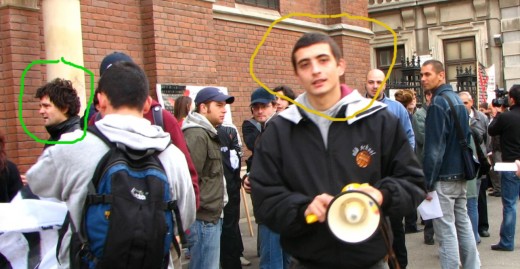
The two final candidates of the 2025 presidential elections go way back and know each other from when both were heavily involved in social activism.
In 2012, when Nicusor Dan announced his candidacy for the General Council of Bucharest, young George Simion wrote the following on his personal blog:
Title: Nicusor Dan — My Mayor for Bucharest
I, for one, won’t be asking who Nicusor Dan is, like all the other bloggers. I know who he is: he’s one of ours who has decided to join the political battleground as an independent candidate for the position of a councillor in Bucharest and its city hall. I’m happy that for the first time, I will vote for an actual person and not the lesser evil.
I met Nicusor Dan back in 2006 at the first meeting for saving the historical center of Bucharest. It didn’t take long to find him in the pictures we took back then. He’s the guy on the left (referring to the picture above) — in a meeting from November 2006; the protest started at St. Joseph Cathedral, for those who remember.
— a fragment from George Simion’s old WordPress blog (deleted during the 2025 presidential campaign), English translation and adaptation by Adrian CDTPPW
Set to clash with his old friend over their opposing political views in the final round of the 2025 presidential elections, George Simion, who was completely absent from the political debates preceding the first round of elections (aiming to emulate his supposed mentor, Caling Georgescu), surprised everyone by participating in a single live political debate on Euronews Romania, in which, unexpectedly, Nicusor Dan dominated him.
Following that first and only direct confrontation between the two candidates, George Simion chose to ignore any future invitation and the domestic situation, flying all over Europe to meet with other pro-Russian and ultranationalist leaders of Europe. (Personally endorsing Karol Nawrocki, the ultranationalist candidate for the Polish presidential elections, and giving a speech during a public meeting with his supporters and campaign staff, among other things.)
During his televised appearances, Nicusor Dan has shown a more presentable front and a very pertinent and concise public discourse, unbefitting of the social awkwardness many people accused him of. This, coupled with Simion’s domestic absence in the last week, has the potential to shift the support of the neutral or undecided electorate to the pro-NATO and EU candidate.
In Romania, there are in total three other precedents when a presidential candidate won the first round with 40% of the total votes only to lose the presidency in the second and final round. Experts say, despite Simion’s huge number of votes, the ultranationalist vote is already close to the peak, and a tight race will unfold in the second round, very favorable to Nicusor Dan, who has more room for growth than George Simion.
© 2025 Adrian A.

